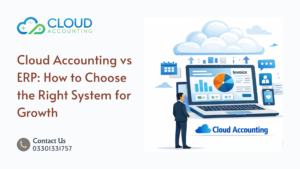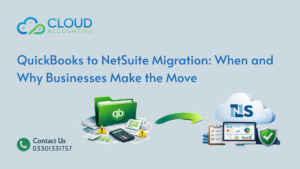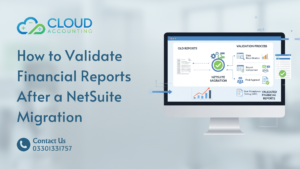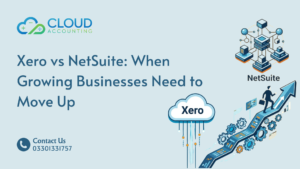In this modern era, being a social media influencer is a full-time job.
You’re constantly creating content, collaborating with brands, tracking engagement, managing DMs, negotiating contracts… and somewhere in the chaos, you’re expected to file taxes, track income, and understand your finances like a seasoned accountant.
If that last part made you cringe, you’re not alone.
Influencer accounting is an often-overlooked but incredibly important part of growing (and sustaining) a social media career. Whether you’re a full-time content creator or just starting to monetize your platform, streamlining your finances isn’t just about being responsible it’s about building a stable, scalable business.
In this post, we’ll break down the most common financial challenges influencers face, how cloud accounting can simplify your life, and what tools you need to keep your numbers just as polished as your feed.
The Financial Struggles Influencers Know All Too Well
Let’s start with a little honesty: traditional accounting wasn’t built with influencers in mind.
You may not get a regular paycheck, you might get paid in multiple currencies, and one month’s income could be ten times higher than the next. On top of that, you might be getting paid through bank transfers, PayPal, affiliate networks, or even brand-sponsored gifts.
Here are some of the biggest headaches we see content creators deal with:
1. Unpredictable Income
Income from brand deals, affiliate sales, YouTube AdSense, and digital products all hit your account at different times. That makes budgeting and planning extremely tricky.
2. Poor Record-Keeping
Many influencers don’t have a system for tracking their income and expenses. That leads to missed write-offs, overpaid taxes, and major stress when tax season rolls around.
3. Confusing Tax Requirements
Are brand gifts taxable? Do you charge VAT on your collaborations? What if you work with overseas clients? Influencer tax filing can feel like a maze especially if you’re trying to do it alone.
4. Mixing Personal and Business Finances
Most influencers run their business from a personal account, which makes it harder to separate business expenses from daily life.
Sound familiar?
Don’t worry you’re not failing. You just need better systems.
How Cloud Accounting Simplifies Influencer Finances
That’s where cloud accounting for influencers becomes a game changer. It’s not just for big companies or finance nerds—it’s for anyone who wants to take their business seriously (without losing their mind in spreadsheets).
Here’s what cloud accounting tools like Xero or QuickBooks Online can do for your influencer business:
Automatically Track Income
Instead of manually adding up income from five platforms, your accounting software can link directly to
- Bank accounts
- PayPal
- Stripe
- Affiliate platforms
This means you can see exactly how much you’ve made this week, this month, or this year—no calculator needed.
Categorize Expenses (and Spot Write-Offs)
From camera gear to editing software, props, travel, meals, and even your home office—there are dozens of legitimate business expenses you may be missing out on.
Cloud tools let you:
- Upload receipts via mobile app
- Automatically categorize recurring expenses
- Tag transactions for easy tax deductions
Simplify Tax Filing
Once you’ve got your income and expenses tracked, filing taxes becomes way easier. Many tools even let you
- Generate tax summaries
- Export reports for your accountant
- Track VAT (if applicable)
- Avoid penalties by spotting compliance issues early
With proper influencer bookkeeping, you won’t just survive tax season—you’ll walk in prepared.
See the Bigger Picture
Want to know which platform makes you the most money? Or which brand collaborations are actually profitable? Cloud accounting gives you real-time reports so you can make smart business decisions without the guesswork.
Tools Every Influencer Should Use to Manage Revenue
Now that we’ve talked about what cloud accounting can do, let’s look at some specific tools and how they fit into your workflow.
1. Xero
Xero is a cloud-based accounting platform that’s perfect for influencers who want a clean, modern interface with lots of automation. It connects with PayPal, Wise, Stripe, and many banks and it plays nicely with e-commerce and affiliate platforms.
Xero makes it easy to:
- Create branded invoices for brand deals
- Track income from multiple sources
- See how much tax you owe (and set aside for it!)
2. QuickBooks Online
QuickBooks is great for influencers who need slightly more robust reporting, especially if you’re starting to grow a team or work across multiple platforms.
It includes:
- Mileage tracking for travel
- Smart reports for revenue trends
- Real-time profit and loss summaries
3. Dext (formerly Receipt Bank)
Dext helps automate your expense tracking by letting you scan receipts with your phone and push them straight to your accounting software. It helps you with keeping track of props, subscriptions, and campaign-related costs.
4. Calendly + Stripe or PayPal
If you charge for consulting, coaching, or brand audits, use a combo like Calendly + Stripe to collect payments and sync them with your accounting tools. It keeps things clean and organized.
A Real-Life Example: Meet Zara, the Lifestyle Influencer
Zara is a full-time lifestyle influencer with 200K Instagram followers, a successful YouTube channel, and a growing digital product line.
She used to manage her income in a messy Google Sheet and always panicked at tax time. One month she’d make $15,000, the next $3,000—and she never knew what to expect.
After working with Cloud Accounting, here’s what changed:
- Her bank feeds and PayPal sync directly to Xero
- She uses bank rules to automatically code affiliate income vs. sponsorships
- She gets quarterly tax summaries and knows exactly how much to set aside
- She tracks income by platform so she can focus on what’s most profitable
Result? Zara has more time to focus on content and less time stressing about spreadsheets. Win-win.
Common Influencer Accounting Mistakes (and How to Avoid Them)
Before we wrap up, here are a few pitfalls we see often and how to dodge them:
Mixing personal and business expenses
Open a dedicated business account for influencer revenue and expenses
Ignoring income under $600
Track all income yes, even small collabs. They add up, and they’re still taxable.
Forgetting about VAT or GST (if applicable)
Know your region’s tax rules and use your accounting tool to stay compliant
Waiting until tax season to “figure it all out”
Stay organized monthly, not just in April
Are You Ready to Stop Guessing and Start Growing?
At Cloud Accounting, we specialize in helping social media influencers like you feel in control of your finances.
Whether you’re a fashion creator, tech reviewer, beauty blogger, or gaming streamer—we understand your business model, your revenue mix, and your unique financial challenges.
We’ll help you.
- Set up cloud accounting software tailored for influencers
- Track income from brand deals, YouTube, affiliate links, and more
- Handle influencer tax filing with confidence
- Automate your bookkeeping (and yes, make it painless)
Book your free consultation with Cloud Accounting today, and let’s build you a back-end system as polished as your personal brand.
Because your content deserves the spotlight and your finances deserve the strategy to match.








